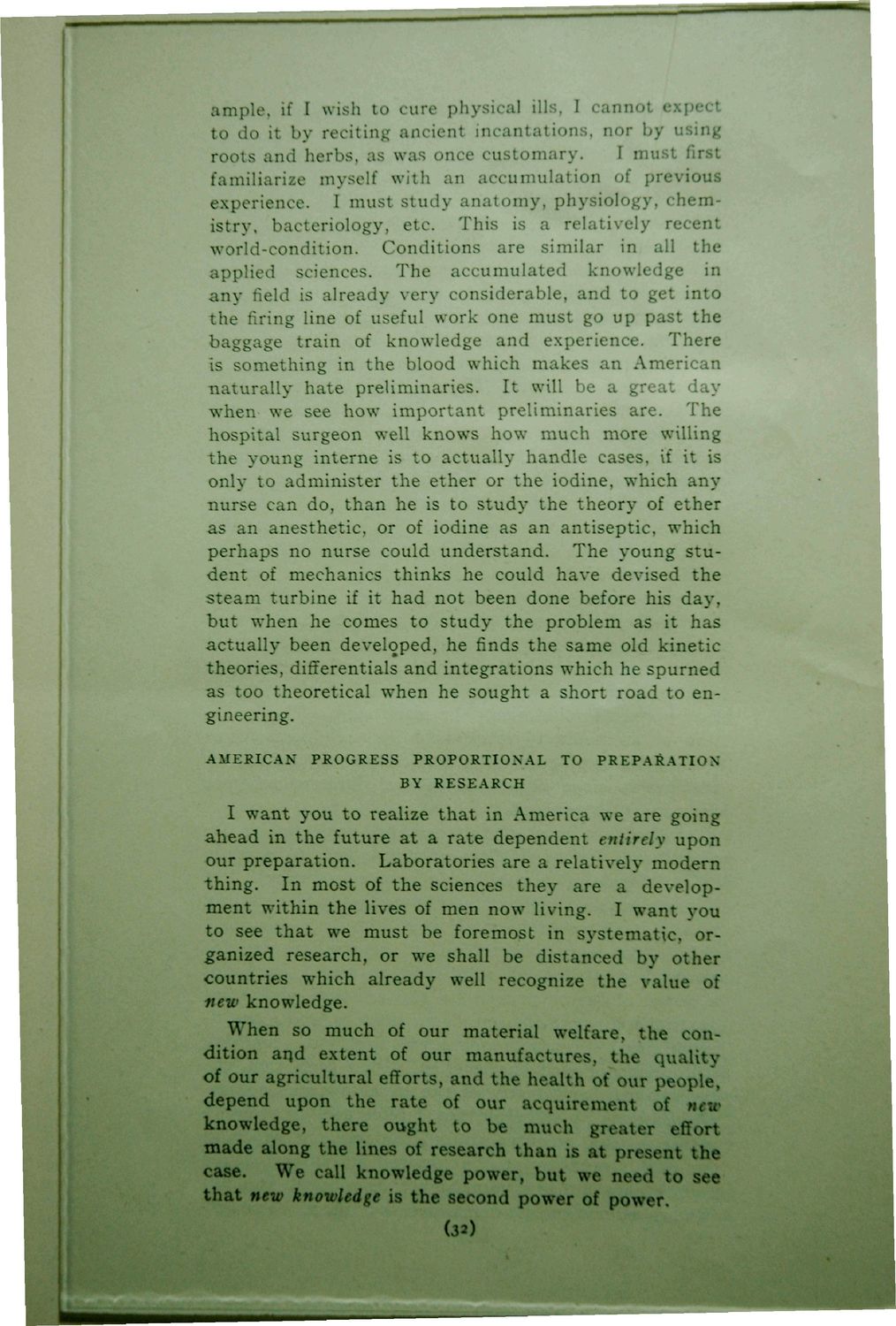| |
| |
Caption: Dedication - New Chemistry Building
This is a reduced-resolution page image for fast online browsing.

EXTRACTED TEXT FROM PAGE:
ample, if I wish to cure physical ills, I cannot expect to do it by reciting ancient incantations, nor by using roots and herbs, as was once customary. I must first familiarize myself with an accumulation of previous experience. I must study anatomy, physiology, chemistry, bacteriology, etc. This is a relatively recent world-condition. Conditions are similar in all the applied sciences. The accumulated knowledge in any field is already very considerable, and to get into the firing line of useful work one must go up past the baggage train of knowledge and experience. There is something in the blood which makes an American naturally hate preliminaries. It will be a great day when we see how important preliminaries are. The hospital surgeon well knows how much more willing the young interne is to actually handle cases, if it is only to administer the ether or the iodine, which any nurse can do, than he is to study the theory of ether as an anesthetic, or of iodine as an antiseptic, which perhaps no nurse could understand. The young student of mechanics thinks he could have devised the steam turbine if it had not been done before his day, but when he comes to study the problem as it has actually been developed, he finds the same old kinetic theories, differentials and integrations which he spurned as too theoretical when he sought a short road to engineering. AMERICAN PROGRESS PROPORTIONAL TO BY RESEARCH PREPARATION I want you to realize that in America we are going ahead in the future at a rate dependent entirely upon our preparation. Laboratories are a relatively modern thing. In most of the sciences they are a development within the lives of men now living. I want you to see that we must be foremost in systematic, organized research, or we shall be distanced by other countries which already well recognize the value of new knowledge. When so much of our material welfare, the condition and extent of our manufactures, the quality of our agricultural efforts, and the health of our people, depend upon the rate of our acquirement of new knowledge, there ought to be much greater effort made along the lines of research than is at present the case. We call knowledge power, but we need to see that new knowledge is the second power of power. (3a)
| |